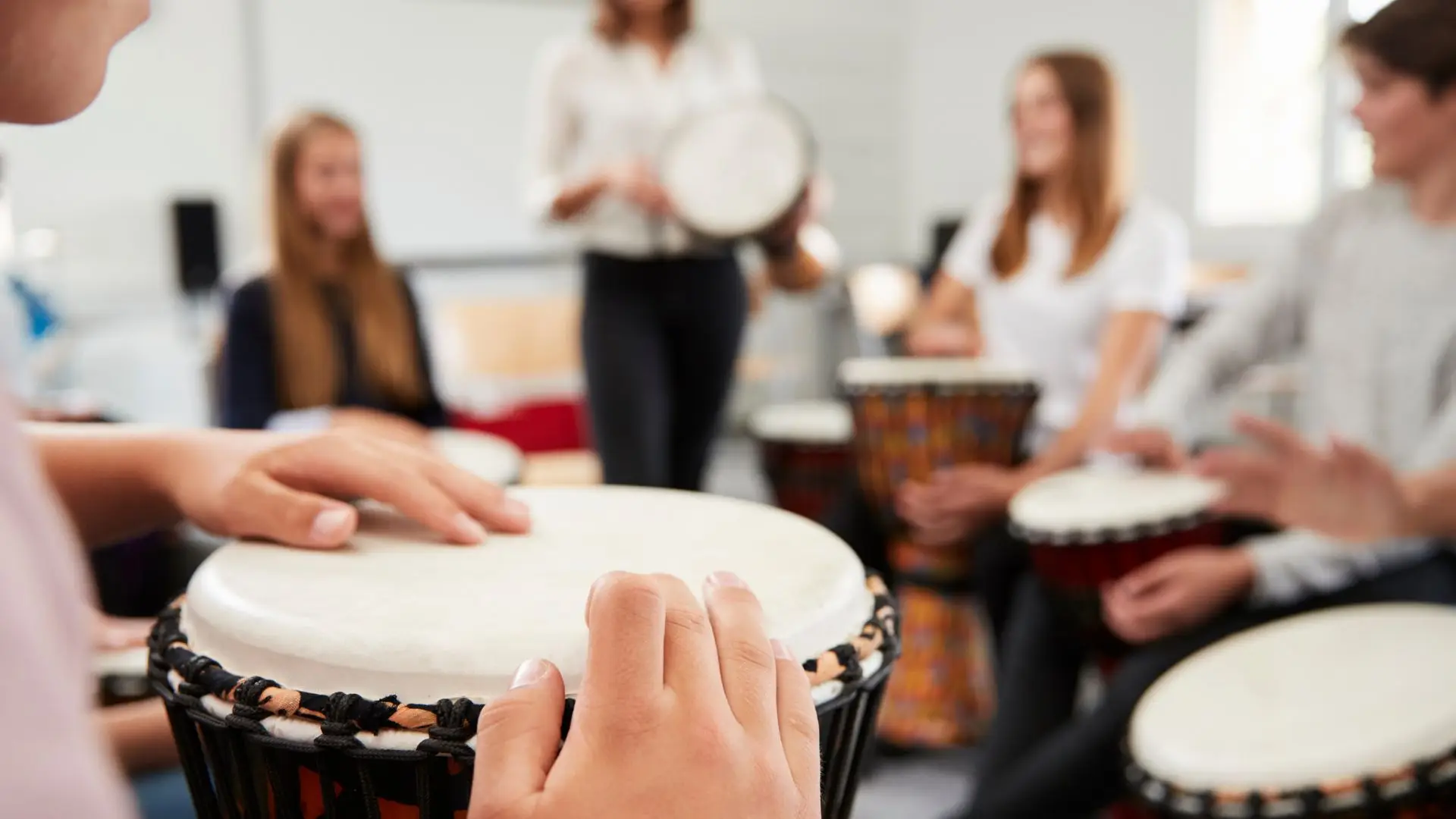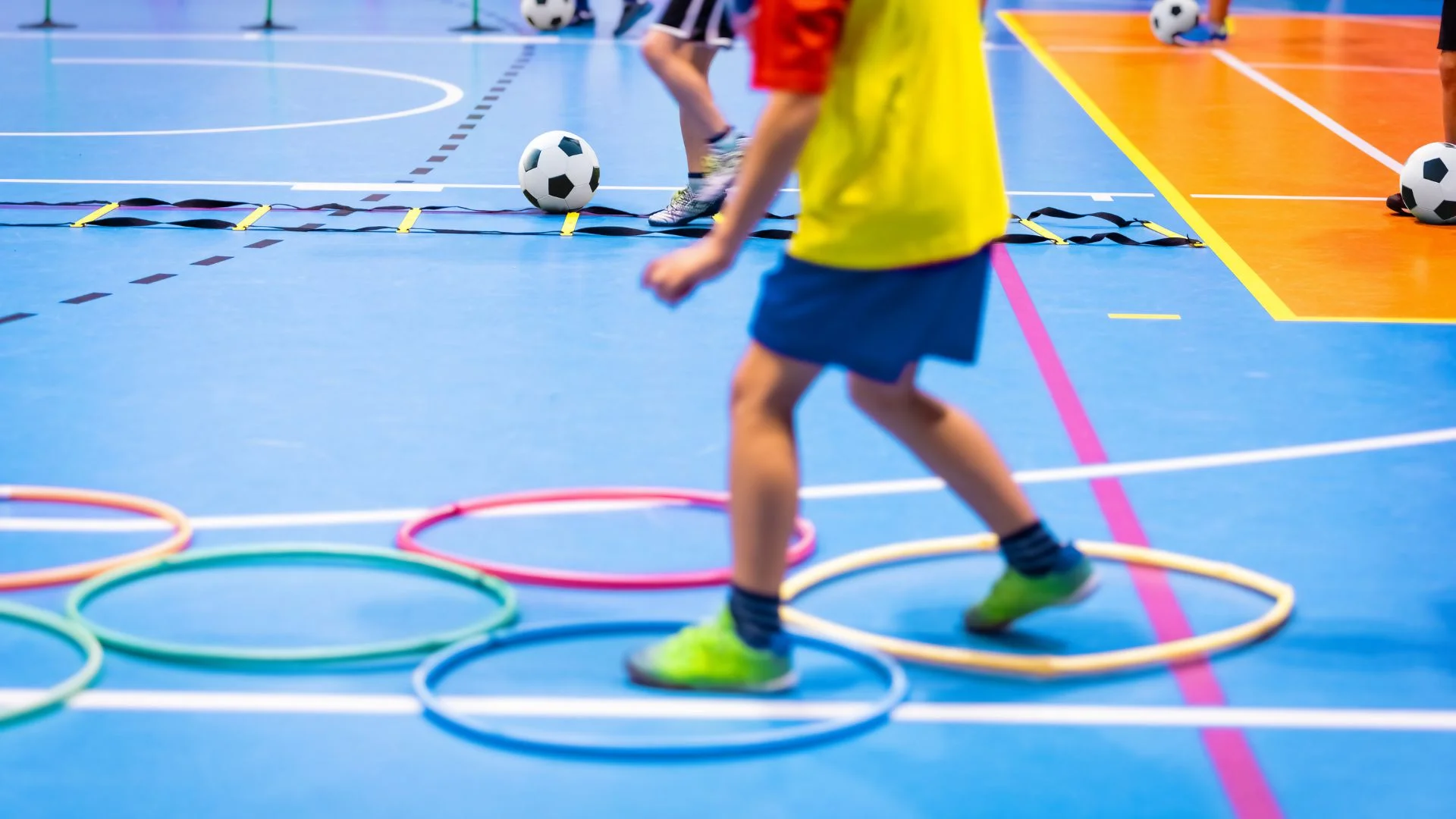Music Matters: The Fight for Arts Education on International Music Day
26 Aug, 20251-2 minutes
In this blog, you will learn:
- What’s driving the decline of arts education in UK schools.
- The importance of music and the arts in schools.
- The biggest threats to the arts in schools.
- How to do arts projects in schools on a budget.
- Where the latest teaching jobs are and how to apply for them.
With International Music Day approaching on 1st October, it’s the perfect time to recognise important but often undervalued creative school subjects like music and the arts. For children and young people, music is crucial for learning, memory and development, however, when it comes to budget cuts, the arts are often the first to suffer.
According to State of the Arts, the UK has one of the lowest levels of government spending on arts and culture among European countries, having slashed its total culture budget by 6% since 2010. Meanwhile, other European countries like Germany, France and Finland have increased their budget by up to 70%.
In English state schools, engagement with music has fallen by 26% with entries for GCSE Music down 41% from 2010 to 2023 and A Level entries down by 46%.
With budget cuts putting arts education at risk, it’s important for Teachers to keep students engaged in creative subjects like music, drama and dance.
In this blog, we explore why music and the arts are often the first to face budget cuts in schools and share creative ways to keep arts projects thriving, even on a tight budget.
What’s driving the decline of arts education in UK schools?
Since 2010, Arts Council England has had their budget cut by roughly 30%, leaving many extracurricular creative programmes unfunded.
School Cuts found that the gap in funding will mean that 75% of primary schools and 92% of secondary schools will be forced to make cuts next year. The average primary school will see a cut in spending power of 1.1% and the average secondary school will see a cut of 1.2%. In total there will be a £630 million real terms cut to school funding.
With schools citing funding pressures and prioritising core subjects like Science, Technology, Engineering and Mathematics (STEM), it’s challenging for Teachers working in the Arts to engage with students and inspire creativity.
Financial and funding pressures on schools have been cited as a major driver of increasingly sidelined arts communities for children and young people. According to research by Child of the North and the Centre for Young Lives, 93% of children in state schools are being excluded from the arts due to a lack of funding.
The same research also found that entries of expressive arts subjects at GCSE fell by 34% between 2015 and 2024. Art subjects now account for a smaller proportion of GCSE and A-level entries.
In fact, 42% of schools no longer enter pupils for GCSE Music, 41% no longer enter pupils for GCSE Drama and 84% of schools don’t offer GCSE Dance.
Growing Musicians, Shaping Lives found that nearly half of the Teachers surveyed reported a decline in extracurricular music participation over the past five years. This is the same for instrumental lessons, with 45% noting a decrease and only one in five observing an increase.
The importance of music and the arts in schools
All children and young people regardless of wealth, race, religion or disability should be encouraged to take part in the arts and creative subjects. It’s essential to provide opportunities in schools for creativity to flourish.
In schools, art projects and creative subjects are recognised for their contribution to student development, academic performance and wellbeing. Arts and music education play a crucial role in learning and positively impacting cognitive, social and emotional development.
Schools that are arts-rich often see better engagement, learning outcomes and a stronger sense of community. Arts education can foster creativity, self-expression and collaboration, while also building essential skills and enhancing academic performances.
Music especially has a profound impact and can shape mood, support cognitive functions and even physical wellbeing. It can open doors to career pathways and contribute to long-term wellbeing and financial opportunities. Learning an instrument can boost confidence, sharpen focus and give students a creative outlet which they can carry through life.
However, funding cuts and the decline of creative subjects in schools are limiting these opportunities for children and young people, particularly those from less advantaged backgrounds.
The biggest threats to the arts in schools
The biggest threats to the arts in schools include:
- Funding cuts and reduced budgets with the arts usually the first to go.
- Decreased curriculum time with less time allocated to arts subjects and an increase in academic pressures.
- A narrowing of the curriculum due to increased focus on standardised testing and accountability.
- Decline in the number of specialist arts Teachers reducing access to quality arts education.
- Budget constraints often lead to cuts in school productions, music ensembles and after-school clubs which offer vital creative outlets.
- Students in underfunded schools or low-income areas are disproportionately affected, widening the gap in arts participation and opportunity.
How to deliver arts projects in schools on a budget
Ideas on how to deliver arts projects in schools on a budget:
- A school choir involves students and their singing voices, meaning it doesn’t require a budget.
- There are numerous free or online digital tools which support music, visual arts, drama, dance and filmmaking such as Canva, Scratch and Soundtrap. Online learning tools let students create, collaborate and learn across all art forms using a computer or tablet.
- Teachers can encourage students to bring in materials and make sustainable, innovative instruments together.
- Teach students about the theory of music and encourage them to write their own songs, compositions or musical shows.
- Put on a musical or talent show, or even film a short movie, to demonstrate the creativity and talent of the students. Encourage students to choreograph their own dances, write their own scripts and songs and even create their own costumes.
- Collaborate with local artists and dancers who can offer workshops or mentorship, and even consider co-creating projects.
SCG School Insights Report 2025
As specialists in education and SEND recruitment, we work closely with primary, secondary, and SEND schools throughout the UK and are mindful of the challenges that schools and teaching staff are currently facing.
In the School Insights Report 2025, we explore pupil experience and outcomes, key developments impacting the education sector, staffing and workforce trends, and the state of funding and resources in education. Read the SCG School Insights Report 2025 here.
Teaching, school support staff and school facilities jobs
If you’re searching for a new career opportunity, why not take a look at the latest education jobs, or simply upload your CV to be notified when a relevant job opening becomes available.
Recruit teaching, support and facilities staff
As a specialist education recruitment agency, we support mainstream and SEND schools with their recruitment needs.
Whether you’re searching for teaching, support, or facilities staff, we have exclusive access to some of the best educators in the North West.
If you’re struggling to fill a vacancy, why not get in touch with one of our team to see how we can help?
- Primary schools - Jimmy Callagher
- Secondary schools - Liam Jones
- SEND schools - Jamie Heath
Meet Jamie Heath
Who is Spencer Clarke Group?
Established in 2017, we’re an award winning and progressive recruitment agency based in the heart of the North West. Our reputation is built on trust, expertise and an unwavering commitment to exceed expectations.
In 2024, we were named Recruitment Agency of the Year at the prestigious Recruiter Awards, an accolade we are extremely proud of.





